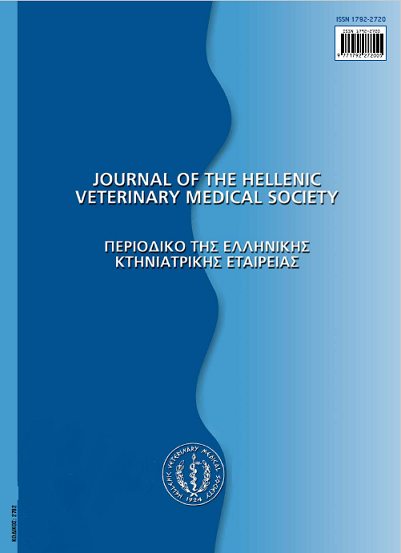First detection of the amphibian chytrid fungus (Batrachochytridium dendrobatidis) in free- living anuran populations in Greece
Resumen
The amphibian chytrid fungus (Batrachochytrium dendrobatidis) is a widespread, cosmopolitan pathogen largely affecting free-living amphibian populations. So far there are no published studies for the presence of B. dendrobatidis in Greece. In this preliminary study we sampled 59 metamorphosed anurans from four Greek wetlands. Five samples were positive for the fungus by real-time PCR. B. dendrobatidis was detected in three species (Bufo viridis, Pelophylax epeiroticus, Pelophylax ridibundus) but not in endangered endemic Karpathos water frogs (Pelophylax cerigensis). This is the first report of the amphibian chytrid fungus (Batrachochytrium dendrobatidis) in free-living anuran populations from Greece.
Article Details
- Cómo citar
-
AZMANIS, P. N., STRACHINIS, I., LYMBERAKIS, P., & MARSCHANG, R. E. (2018). First detection of the amphibian chytrid fungus (Batrachochytridium dendrobatidis) in free- living anuran populations in Greece. Journal of the Hellenic Veterinary Medical Society, 67(4), 253–258. https://doi.org/10.12681/jhvms.15647
- Número
- Vol. 67 Núm. 4 (2016)
- Sección
- Research Articles

Esta obra está bajo una licencia internacional Creative Commons Atribución-NoComercial 4.0.
Authors who publish with this journal agree to the following terms:
· Authors retain copyright and grant the journal right of first publication with the work simultaneously licensed under a Creative Commons Attribution Non-Commercial License that allows others to share the work with an acknowledgement of the work's authorship and initial publication in this journal.
· Authors are able to enter into separate, additional contractual arrangements for the non-exclusive distribution of the journal's published version of the work (e.g. post it to an institutional repository or publish it in a book), with an acknowledgement of its initial publication in this journal.
· Authors are permitted and encouraged to post their work online (preferably in institutional repositories or on their website) prior to and during the submission process, as it can lead to productive exchanges, as well as earlier and greater citation of published work.



